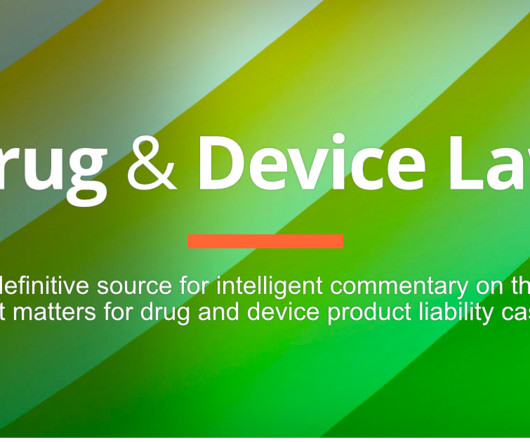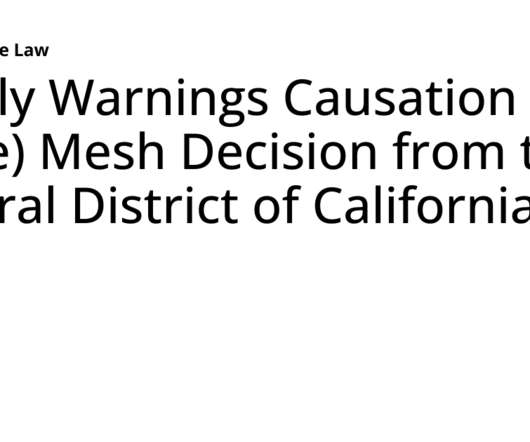Another RICOdiculous Decision
Drug & Device Law
JULY 24, 2023
2019) (“ PATDC82 I ”), because the third-party payor (“TPP”) plaintiffs were allowed to misuse RICO to pursue what was essentially a garden variety inadequate warning case – that the drug Actos increased the risk of bladder cancer. 341 (2001). Takeda Pharmaceuticals Co. , 3d 1243 (9th Cir. Indeed, that’s what the label says.












Let's personalize your content